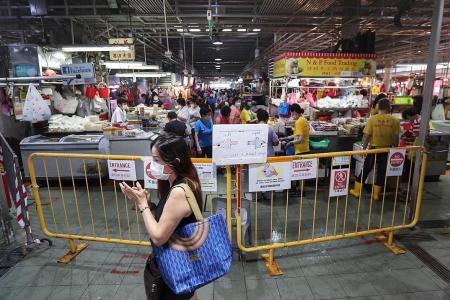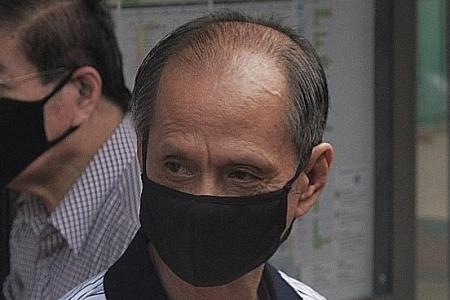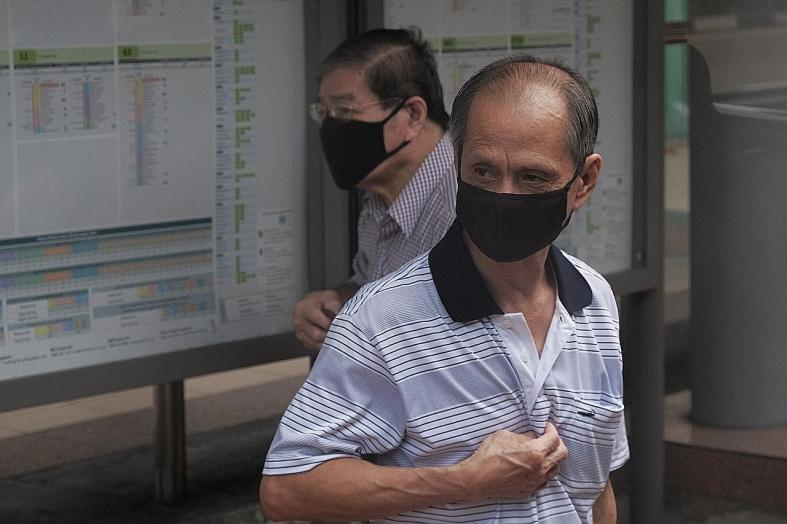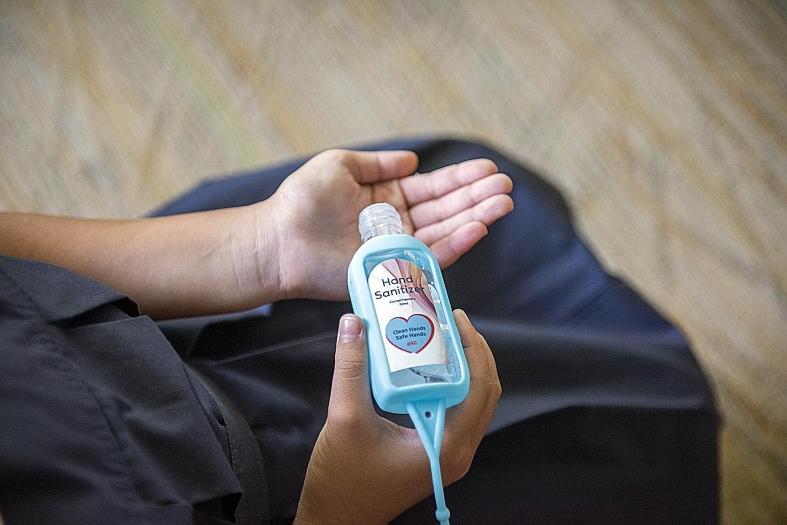Strict safety measures in place for staff and shoppers: Supermarkets
Precautions include strict cleaning regimes, providing hand sanitisers and safe distancing marks on floors
by Melissa Heng & Cheryl Tan

Supermarkets and wet markets have emerged as potential hot spots in the effort to curb the spread of Covid-19 as several people who tested positive for the virus over the past week had visited these places for 30 minutes or more, according to the authorities.
The Ministry of Health named four FairPrice outlets and two wet markets this week as public places visited by Covid-19 cases.
Supermarket chains such as FairPrice and Sheng Siong said they have implemented strict safety measures for both customers and staff throughout the pandemic.
In response to questions from The Straits Times about some FairPrice outlets having been visited by Covid-19 patients, a spokesman said: "FairPrice has put in place stringent precautionary measures to maintain a safe and clean environment for our staff and customers in accordance with the authorities' guidelines.
"We will continue to maintain strict cleaning regimes, especially for high touch surfaces like railings, trolleys, baskets, checkout counters."
It also provides staff with masks and takes their temperatures twice a day. Hand sanitisers are also available for staff and customers, who must also wear masks in the store.
FairPrice outlets have floor markings at checkout queues to help customers keep a safe distance and crowd control measures.
Similar measures have also been implemented at Sheng Siong outlets and supermarkets under grocery retail group Dairy Farm. These include Cold Storage and Giant.
Shoppers also have to scan their NRICs for entry to all supermarkets or scan a QR code via SafeEntry, the digital check-in system developed by the Government Technology Agency.
A Sheng Siong spokesman said: "There are also in-store notices and regular announcements to remind customers to keep a safe distance."
A Dairy Farm spokesman added that bi-hourly disinfecting of high touch areas such as baskets and trolleys are also conducted at its stores.
The National Environment Agency (NEA) said it is putting up SafeEntry QR codes across all wet markets and hawker centres, and patrons are encouraged to use them.
The agency also advised the town council and its cleaning contractor to thoroughly wash and disinfect the market and hawker centre at Block 505 Jurong West Street 52 that two active Covid-19 cases visited within the past two weeks.
Medical experts noted that any location that attracts large crowds could become potential weak links.
Infectious diseases expert Leong Hoe Nam suggested that supermarkets include hand sanitisers along aisles and shelves to encourage people to clean their hands more frequently.
Shoppers that The Straits Times spoke to said going to markets was necessary.
Engineer June Aw, 41, who shops at the FairPrice at Hillion Mall about twice a week, said: "I think the supermarkets are taking every precaution that they can. I also do my part by visiting during non-peak periods and making sure to wash my hands when I get home."
Must-dos when going to shops

Professor Paul Tambyah from the department of medicine at the National University of Singapore's Yong Loo Lin School of Medicine said studies show that gloves can carry germs longer than our hands do.
This is because our hands have natural antibacterial oils that allow us to remove germs more easily after repeated sanitising.
Gloves do not have these natural defences and so could allow biofilm-forming microbes such as bacteria and viruses to stick to them.
Shoppers should instead make it a practice to clean their hands as frequently as possible. And they should also remember to keep their hands off their faces.
Must-dos when going to shops

Wear a mask correctly by ensuring that it is not loose and that your nose is not exposed
Wash your hands with soap as frequently as possible
Dr John Cheng, head of primary care at Healthway Medical, said it is good practice for shoppers to wash their hands as soon as they return home from their grocery runs.

Shoppers should also bring their own bottle of hand sanitiser
Refrain from touching your face
Infectious diseases expert Leong Hoe Nam suggests that people who cannot stop touching their face should wear a face shield.
Avoid peak hours when it is more crowded and try to limit grocery runs to once a week if possible.
Shoppers are advised not to wear gloves.